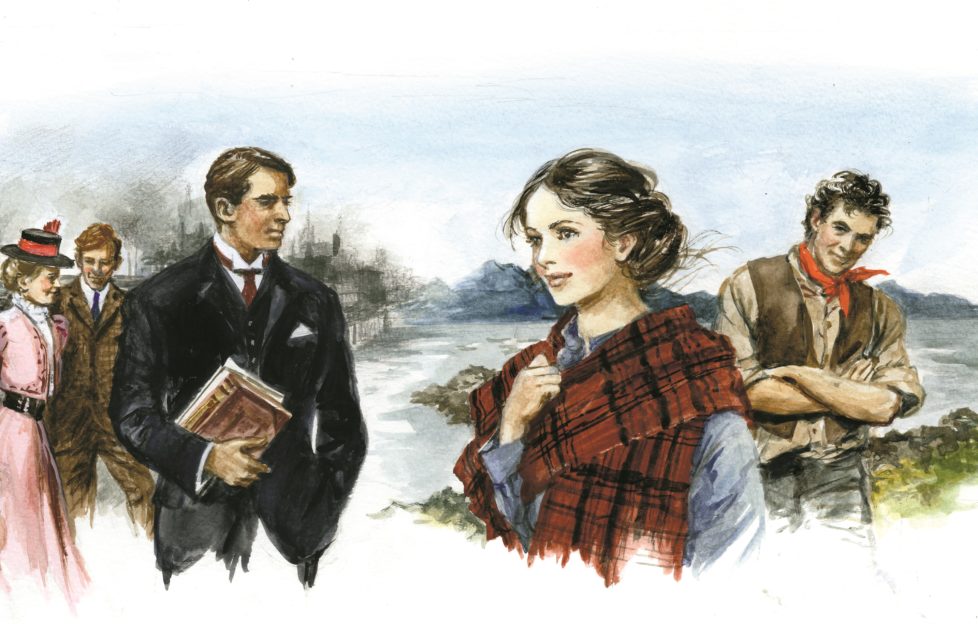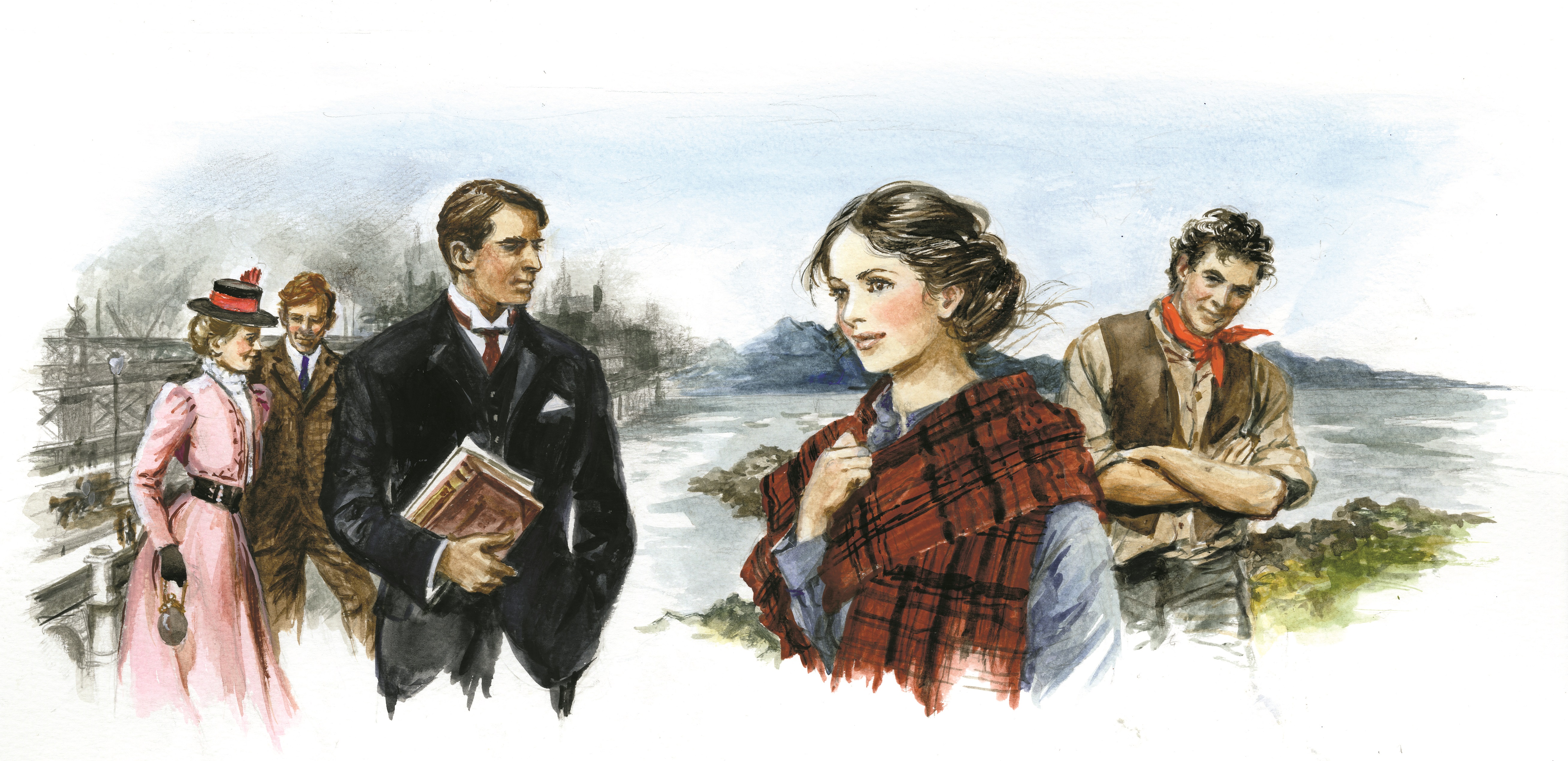Far From The Island – 38

Far From The Island
« Previous Post- 35. Far From The Island – 35
- 36. Far From The Island – 36
- 37. Far From The Island – 37
- 38. Far From The Island – 38
- 39. Far From The Island – 39
- 40. Far From The Island – 40
- 41. Far From The island – 41
“It’s good to see you.” Matthew wrapped his arms around Fiona and kissed her.
“We’re in the middle of Union Street,” she said, blushing.
He let her go reluctantly.
“We’re like ships in the night these days.”
“I have to take my turn at working nights, Matthew.”
Her big eyes pleaded with him for understanding. Gazing down at her gamine face framed by her silky black hair, the skin which retained the freshness of her island upbringing, and the generous mouth he longed to kiss much more thoroughly, Matthew struggled with the urge to cast caution to the wind and ask her to marry him right now, as soon as it could be arranged.
“I’ve missed you,” he said softly.
She dropped her gaze.
“We knew it would be like this when I started at the hospital.”
The hospital she loved. It was selfish of him to wish she had not quite such a strong vocation, especially since he was just as driven as she was.
“You’re right, of course,” Matthew said. “We did. Only when you look at me like that, I can’t help wishing . . .” He broke off, annoyed at himself for having said even this much. He loved her, of that he was absolutely certain, though whether she loved him he was less sure. He would not rush her, nor would he force her to view marriage as a choice which precluded working, as her friend Ella did.
“Ignore me,” Matthew went on, giving himself a mental shake and guiding her towards the door of the Georgia Tea Room. “I’m just a bit fed up at having to miss the meeting with Cunningham. Let’s get some cake, and you can tell me how it went.”
* * * *
“Why won’t you tell me what’s wrong, Ella?” John Harrison set down his cutlery and pushed his half-eaten dinner to one side.
“Aren’t you hungry?” his wife asked, eager to change the subject. “There’s rice pudding to follow. I’ll just go and get it.”
“Ella, sit down. Talk to me. Please, tell me what’s wrong.”
He looked tired, Ella thought. He was working long hours in an effort to make his mark in the school. Working for their future, she reminded herself. She should be grateful, not resentful.
“It’s nothing,” she said, avoiding his eye. This was the third time this week he’d asked her, and the third time she’d brushed him off. She should be happy. Any other woman in her place would be happy. “It’s nothing,” she repeated, and got to her feet, gathering up the plates.
John caught her wrist.
“Is it me? Have I done something to upset you?”
He was not the kind of man to let his emotions show, but she caught a glimpse of her own misery reflected in his face, and her heart contracted.
“It’s not you. It’s me. I love you so very much,” she blurted out, “but I’m so unhappy.” Dropping the plates on to the table with a clatter, Ella burst into tears.
She had never been one who believed in the benefits of a good cry, and she did not change her mind now. She had no right to feel sorry for herself, and the storm of emotion, so long held in, which made her feel as if she were being wrung out like a wet dish cloth, made her quite inarticulate, incapable of saying anything, which only served to deepen the anxious frown on her dear husband’s face.
Ella took a deep breath, and then another, dabbing frantically at her eyes with the large, clean square of John’s handkerchief. She’d embroidered it herself with his initials, very badly.
“I’m a terrible wife,” she said to him shakily. “I can’t cook, I can’t knit or sew. It takes me for ever to get the fire going in the morning. I’ve nothing in common with the wives of the other schoolmasters.”
He pulled her over to her chair by the fire and kneeled before her, holding her hands.
“Give it time, Ella. We’ve only been here for a few months.”
She bit her lip.
“Fiona was right. I should have told you before.”
“Told me what? For goodness’ sake, Ella, you’re scaring me.”





